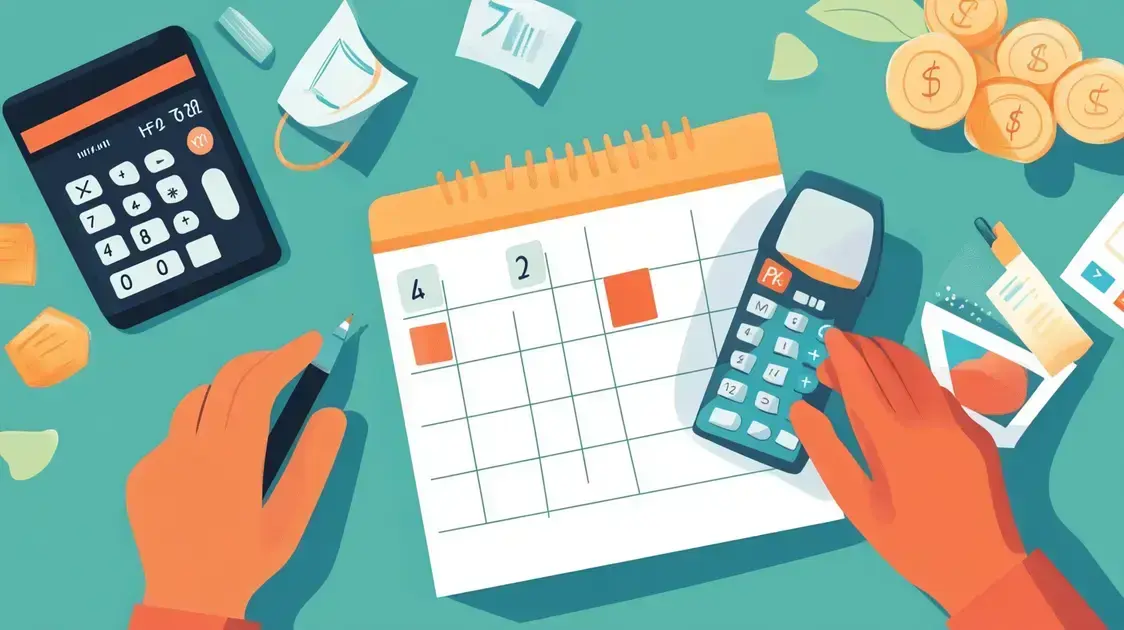Does Late Rent Affect Credit Score? Late rent payments can have a significant impact on your credit score, especially if they’re reported to credit bureaus. While it might seem like a minor issue, missing just one payment could have lasting consequences on your financial health.
Understanding how late rent affects your credit can help you avoid unnecessary setbacks. Many renters aren’t aware that unpaid rent can be reported and negatively impact credit scores, making it harder to get loans or secure housing in the future.
If you’re worried about the effects of late rent, there are steps you can take to minimize damage and improve your score. Keep reading to find out how timely rent payments can actually work in your favor and help you rebuild your credit.
Understanding Credit Scores
Credit scores are important numbers that lenders use to decide if they will loan you money or not. Understanding credit scores is the first step in managing your financial health. Credit scores usually range from 300 to 850, with higher scores meaning better creditworthiness.
Does Late Rent Affect Credit Score? The answer could be crucial to how your credit is perceived by lenders.
How Are Credit Scores Calculated?
Credit scores are calculated using several factors, including:
- Payment History: This is the most important part of your credit score. Making on-time payments is crucial.
- Credit Utilization: This measures how much of your available credit you are using. It is best to keep this number below 30%.
- Length of Credit History: A longer credit history can be beneficial, as it shows lenders you have experience managing credit.
- Types of Credit: Having a mix of credit types, such as credit cards and loans, can improve your score.
- Recent Inquiries: Each time you apply for credit, it can cause a small dip in your score.
Does Late Rent Affect Credit Score? The impact can be significant, especially if late payments are reported to credit bureaus. It’s essential to understand how your rent payments can shape your credit score and what steps you can take to improve it.
Why Is Your Credit Score Important?
Your credit score affects many things, like getting a loan for a car, a mortgage for a house, or even how much you pay for insurance. A higher score can mean lower interest rates and better terms.
In summary, understanding where your credit score stands and how it is calculated can help you take control of your financial future. By keeping an eye on your credit, you can make informed decisions and work towards improving your score.
How Rent Payments Impact Credit
Rent payments play a significant role in your credit score, as timely payments can help you build a positive credit history. When you pay rent on time, it can demonstrate your ability to manage financial commitments.
How Rent Affects Your Credit
While traditional credit scoring models typically do not consider rent payments, some reporting services now include rental history in credit reports. This means that consistent, on-time rent payments may enhance your credit score. On the flip side, missed payments could harm your credit record.
Direct Reporting and Credit Scores
If your landlord or property management company reports your payments to credit bureaus, your rental history could significantly impact your credit. This means that consistently paying rent on time can reflect positively, while late payments can show up as derogatory marks.
Building Credit with Rent Payments
To ensure rent payments help build your credit, consider asking your landlord if they report payments to credit bureaus. If they don’t, you might want to look into services like Experian RentBureau or other rent reporting services that can help report your payment history.
Alternatives for Rent Payment Tracking
For those whose landlords do not report to credit agencies, using a credit card for rent payments can sometimes help. However, this method comes with its own risks, such as accruing interest if not paid off within the billing period. Paying rent through a service that reports payments can also be beneficial.
Understanding how rent payments impact credit can empower renters to take charge of their financial futures. By managing your rent payments effectively, you can work towards achieving a healthier credit score.
Late Payments and Your Report

When you miss a rent payment, it can have serious effects on your credit report. Late payments can stay on your credit report for up to seven years, which can significantly damage your credit score. Does Late Rent Affect Credit Score? The answer is yes, and it’s important to understand how missed payments can impact your financial future.
Impact of Late Payments on Your Credit
Once a rent payment is typically 30 days late, it can be reported to credit bureaus. This negative mark can lower your credit score and make it harder to get loans or credit in the future. Does Late Rent Affect Credit Score? Absolutely. The longer the payment is overdue, the greater the potential for long-term damage to your credit.
How Late Payments Are Reported
If your landlord or property management company reports payments to credit bureaus, they will also report any late payments. This means that consistent late payments can quickly add up, creating a poor credit history.
Effects on Loan Approval
Lenders look at your credit report to assess your risk as a borrower. If they see multiple late payments, they may view you as a higher risk. This could lead to higher interest rates or even denial of loans.
Checking Your Credit Report
Regularly checking your credit report can help you stay informed about any late payments. You are allowed one free credit report each year from each major credit bureau. Use this opportunity to review your report for accuracy.
Addressing Late Payments
If you have missed rent payments, it’s important to address them as soon as possible. Paying your overdue rent can prevent further negative impacts on your credit report. Additionally, you can reach out to your landlord to explain your situation and discuss a possible payment plan.
Improving Your Credit After Late Rent
Improving your credit after late rent payments is possible with some dedicated effort. Here are steps you can take to enhance your credit score over time.
Pay Off Outstanding Debts
One of the first steps to improving your credit is to pay off any outstanding debts, including overdue rent. Making even small payments can show lenders you are responsible and serious about fixing your credit.
Make Timely Payments
Going forward, make all payments on time. Whether it is rent, utilities, or credit card bills, on-time payments can help rebuild your credit score. Set reminders or automate payments to avoid missing due dates.
Check Your Credit Report
Review your credit report regularly to ensure accuracy. If you find errors, like incorrect late payments, dispute them with the credit bureau. Making sure your report is correct is essential for your credit health.
Consider a Secured Credit Card
A secured credit card can help rebuild credit. With this type of card, you deposit money that serves as your credit limit. Make small purchases and pay them off in full each month to demonstrate responsible credit use.
Join a Rent Reporting Service
Joining a rent reporting service can have a positive impact on your credit. These services report your timely rent payments to credit bureaus, which can help improve your score over time.
Be Patient and Persistent
Improving your credit score takes time. Focus on consistent positive behavior and patience. It’s important to remember that credit scores are built on history and stability.
Legal Consequences of Late Rent
Late rent payments can lead to several legal consequences that renters should be aware of. Understanding these legal issues can help tenants navigate their responsibilities and avoid potential pitfalls.
Eviction Process
One of the most serious consequences of late rent is the possibility of eviction. If rent is not paid within a specified grace period, a landlord may begin legal proceedings to evict a tenant. It’s essential to know your lease terms and local laws concerning eviction.
Late Fees
Most leases include a provision for late fees if rent is not paid on time. These fees can accumulate quickly, increasing the total amount owed. Be sure to review your lease to understand what late fees may apply.
Legal Notices
If rent remains unpaid, landlords are generally required to provide a written notice before taking legal action. This notice can inform tenants of overdue payments and the potential for eviction. Ignoring such notices can make matters worse.
Small Claims Court
Landlords may take tenants to small claims court to recover unpaid rent. This can lead to legal fees along with the back rent owed. A tenant’s credit report may also reflect a judgment if the landlord wins in court.
Impact on Rental History
Legal troubles related to late rent may also affect a tenant’s rental history. Future landlords may check rental histories and be discouraged by past evictions or legal actions, making it harder to find a new place to live.
Defending Against Legal Actions
If you face legal actions due to late rent, consider seeking legal advice. There may be defenses you can use, such as proving that you offered to pay rent or that the landlord did not follow proper procedures.
Tips to Avoid Late Rent Payments

To avoid late rent payments and maintain a healthy credit score, consider the following practical tips.
Set Reminders
Use your phone or calendar to set reminders for rent due dates. This simple step can help you remember to pay on time and avoid late fees.
Automate Payments
If your landlord allows it, set up automatic payments through your bank or rental payment service. Automating payments ensures that your rent is paid on time each month.
Create a Budget
Budgeting your expenses can help you ensure you have enough money for rent. Track your income and expenses to prioritize rent payments and avoid falling short.
Communicate with Your Landlord
If you anticipate difficulties in paying rent on time, communicate with your landlord immediately. They may offer assistance or work out a temporary payment plan.
Use a Dedicated Bank Account
Consider opening a separate bank account just for rent payments. This can help you set aside the funds needed for rent each month, reducing the chance of accidental spending.
Be Aware of Grace Periods
Know your lease agreement’s grace period for late payments. Some landlords offer a short period after the due date before charging late fees, giving you additional time if necessary.
Plan for Unexpected Expenses
Set aside a small emergency fund to cover unexpected expenses that might otherwise derail your ability to pay rent. Even small contributions can help when surprises arise. Does Late Rent Affect Credit Score? Taking these steps will help you avoid late payments and protect your credit score.
How to Check Your Credit Score
Checking your credit score is an important step in managing your financial health. Here are some straightforward ways to access your credit score.
Request a Free Credit Report
You are entitled to one free credit report each year from each of the three major credit bureaus: Experian, TransUnion, and Equifax. Visit AnnualCreditReport.com to request your reports online.
Use Credit Monitoring Services
Many credit monitoring services offer free access to your credit score as part of their services. These tools can also alert you to changes in your score or potential fraud.
Check with Your Bank or Credit Card Company
Some banks and credit card companies provide free access to your credit score as a benefit. Log into your online account or mobile app to see if your financial institution offers this service.
Understand What Affects Your Score
When checking your credit score, take some time to understand the factors that impact it. These can include payment history, credit utilization, and the length of your credit history.
Look for Errors in Your Report
When you receive your credit report, review it carefully for any errors. Disputing inaccuracies can help improve your credit score significantly.
Stay Informed About Changes
Regularly checking your credit score can help you stay informed about your financial health. If you notice unexpected changes, act quickly to address any issues. Does Late Rent Affect Credit Score? By staying informed, you can avoid unexpected drops in your credit score.
Does Late Rent Affect Credit Score? – FAQ
Does late rent affect my credit score?
Yes, late rent payments can negatively impact your credit score if they are reported to credit bureaus.
How can I check my credit score?
You can check your credit score for free through AnnualCreditReport.com, credit monitoring services, or your bank and credit card accounts.
What should I do if I miss a rent payment?
If you miss a rent payment, contact your landlord immediately to discuss payment options and avoid further issues.
How long do late payments stay on my credit report?
Late payments can stay on your credit report for up to seven years.
What are the legal consequences of late rent?
Legal consequences can include eviction, late fees, and possible legal action through small claims court.
What tips can help me avoid late rent payments?
You can avoid late payments by setting reminders, automating payments, creating a budget, and communicating with your landlord.

